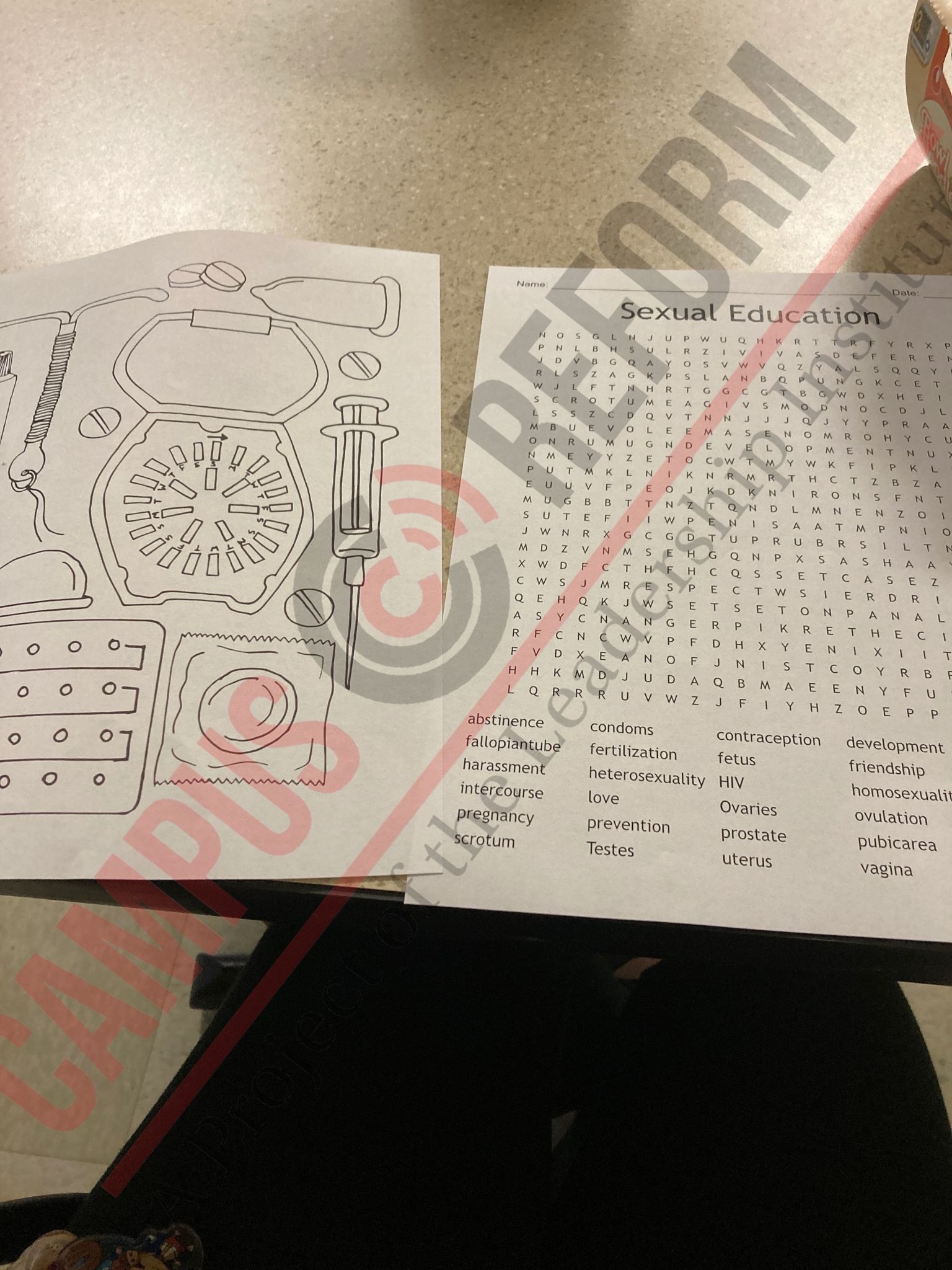'Safe-sex' program host says teaching about contraception risks 'enforcing heteronormativity'
University of Hawaii at Manoa’s National Residence Hall Honorary held a “Send Noods” sexual education night
Handouts included a ‘goody bag’ and a birth control coloring sheet.
On Apr. 22, the University of Hawaii at Manoa’s National Residency Hall Honorary hosted an “a safe sex program” titled “Send Noods.” Attendees of the event were given the option to complete a sex education wordsearch and a coloring page of different birth control methods.
The event featured “condom bingo” and “safe sex education programs.” The presentation was hosted by university lecturer for Women, Gender and Sexuality Studies Lisa Vallin, who told Campus Reform that this was the second time she was invited to speak at the yearly event.
Despite there being a coloring page activity on contraceptives, the program did not expand on the topic.
”The lack of focus on contraception was not intentional, rather I had been asked to focus my talk on the same topics (consent, STDs, and Eroticizing Safe Sex) as the previous year,” Vallin said.
[RELATED: ‘Sex Week at Harvard’ features sex toy giveaways, group sex ‘101]
Vallin also explained that teaching contraception may enforce “heteronormativity.”
”Though teachings about contraception certainly run the risk of enforcing heteronormativity, I think it is important to stress that the use of, particularly hormonal contraception, is used for many other important purposes than preventing possible pregnancy,” she said.


Vallin continued, “Many LGBTQI+ folks use hormonal contraception to treat a number of health conditions that are unrelated to pregnancy. So, had I been asked to teach about contraception, I had certainly incorporated teachings about the use of contraception for non-pregnancy-related issues as well.”
Attendees were also given safe sex goody bags. A photo of the contents, obtained by Campus Reform, included condoms, packets of lube, and strawberry flavored dental dams.
UH NRHH told Campus Reform that the items were chosen based on the feedback from last year’s participants.
Campus Reform contacted the university for comment. This article will be updated accordingly.

